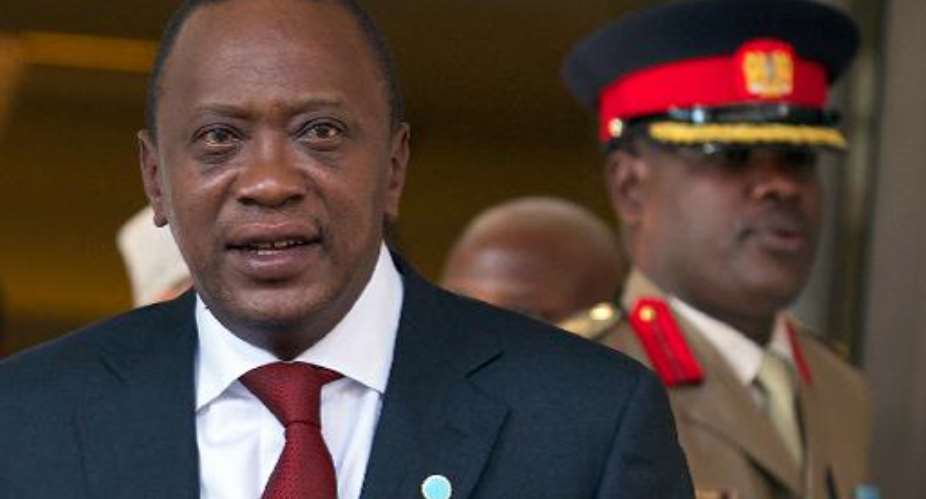The Hague (AFP) - The International Criminal Court on Tuesday rejected a request by Kenyan President Uhuru Kenyatta's lawyers to have him excused from a hearing next week, saying the case was at a "critical juncture".
"The chamber, by majority finds that the requirements of justice in this case necessitate the physical presence of the accused in court," The Hague-based ICC said.
"The chamber considers the status conference to constitute a 'critical juncture' in the proceedings," a three-judge bench added.
Earlier this month judges dropped the October 7 start date of Kenyatta's crimes against humanity trial after prosecutors asked for an indefinite delay until Nairobi handed over documents they believe could clinch their case.
Judges scheduled a status conference instead for the following day, October 8, and summoned Kenyatta to be present.
The Kenyan leader's lawyers then asked that he be excused, citing a summit in Uganda's capital Kampala on the same day which Kenyatta had to attend "as President of Kenya and the chairman of the Heads of State of the East African Community."
They added his trip to Kampala was planned prior to the scheduling of the status conference.
"The chamber does not find merit in the defence's submission regarding the accused's engagements being planned prior to the convening of the status conference," the judges said.
Kenyatta, 52, faces five counts at the ICC over his alleged role in masterminding post-election violence in the east African country in 2007-2008.
It will be Kenyatta's first appearance in court, as he has repeatedly argued he needed to remain in Kenya to fight militants from the Al-Qaeda-linked Shebab group, and manage state affairs.
Events shattered Kenya's image as a beacon of stability for the region in late 2007 when opposition chief Raila Odinga accused then president Mwai Kibaki of rigging his way to re-election.
What began as political riots quickly turned into ethnic killings of Kenyatta's Kikuyu tribe, who in return launched reprisal attacks, plunging Kenya into its worst wave of unrest since independence in 1963.
jhe/cjo/boc





 Former Kotoko Player George Asare elected SRC President at PUG Law Faculty
Former Kotoko Player George Asare elected SRC President at PUG Law Faculty
 2024 elections: Consider ‘dumsor’ when casting your votes; NPP deserves less — P...
2024 elections: Consider ‘dumsor’ when casting your votes; NPP deserves less — P...
 You have no grounds to call Mahama incompetent; you’ve failed — Prof. Marfo blas...
You have no grounds to call Mahama incompetent; you’ve failed — Prof. Marfo blas...
 2024 elections: NPP creates better policies for people like us; we’ll vote for B...
2024 elections: NPP creates better policies for people like us; we’ll vote for B...
 Don’t exchange your life for wealth; a sparkle of fire can be your end — Gender ...
Don’t exchange your life for wealth; a sparkle of fire can be your end — Gender ...
 Ghana’s newly installed Poland train reportedly involved in accident while on a ...
Ghana’s newly installed Poland train reportedly involved in accident while on a ...
 Chieftaincy disputes: Government imposes 4pm to 7am curfew on Sampa township
Chieftaincy disputes: Government imposes 4pm to 7am curfew on Sampa township
 Franklin Cudjoe fumes at unaccountable wasteful executive living large at the ex...
Franklin Cudjoe fumes at unaccountable wasteful executive living large at the ex...
 I'll 'stoop too low' for votes; I'm never moved by your propaganda — Oquaye Jnr ...
I'll 'stoop too low' for votes; I'm never moved by your propaganda — Oquaye Jnr ...
 Kumasi Thermal Plant commissioning: I pray God opens the eyes of leaders who don...
Kumasi Thermal Plant commissioning: I pray God opens the eyes of leaders who don...
